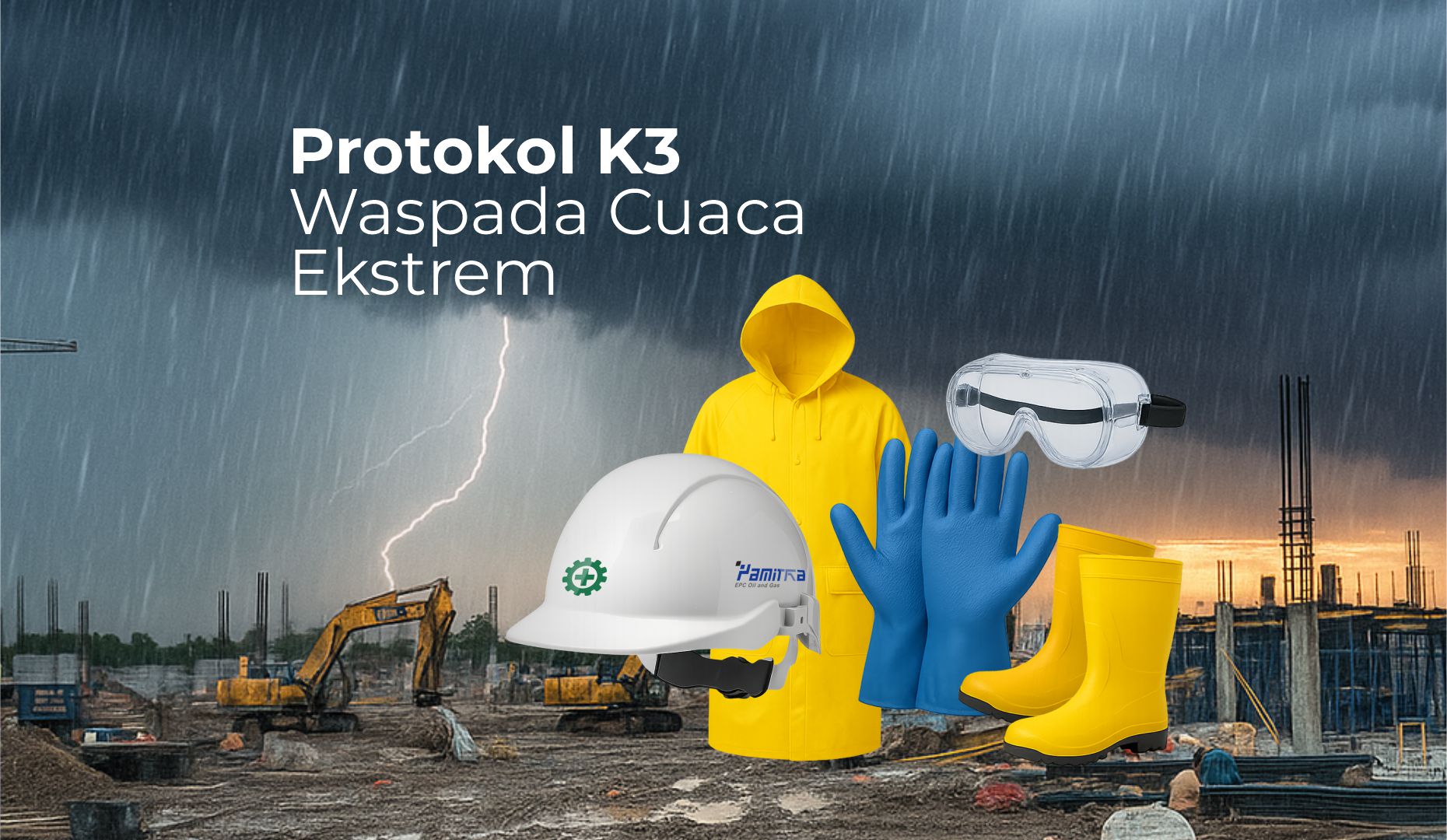In the Oil and Gas Engineering, Procurement, and Construction (EPC) industry, Occupational Health and Safety (K3) is not just a regulation, but a core value that underlies every operational activity. Responsible companies understand that challenges come not only from project technical complexity, but also from natural conditions, including extreme weather.
PAMITRA EPC Oil and Gas, with its steadfast "Zero Accident" philosophy, is consistently committed to creating a controlled and safe work environment for all personnel. This commitment is realized through the implementation of standardized management systems, including the K3 Management System ISO 45001:2018, and driven by concern for the environment as reflected in ISO 14001.
This article will discuss crucial K3 protocols that must be implemented to anticipate and face extreme weather, answering these challenges with one main priority: team safety above all else.
#SafetyFirstPAMITRA Commitment: Zero Accident in All Conditions
For PAMITRA, extreme weather is an operational challenge that must be faced with thorough preparedness and high vigilance. The #SafetyFirstPAMITRA principle affirms that no production target or work urgency should overlook safety aspects. Our "Zero Accident" commitment is a promise to ensure every team member returns home safely to their family under any conditions, including when facing heavy rain, strong winds, or thunderstorms.
The protocols outlined in this article are a direct implementation of the K3 Management System ISO 45001:2018, designed to proactively identify, assess, and control risks, creating a safe and sustainable work foundation.
Here are the critical steps that must be followed by all field personnel:
Environmental Commitment: K3 and Sustainability Go Hand in Hand
As a company holding ISO 14001:2015 certification for Environmental Management Systems, PAMITRA EPC Oil and Gas fully recognizes that extreme weather also brings ecological impacts. This K3 protocol not only protects personnel but also forms part of our efforts to minimize the environmental impact of project operations, such as managing water runoff and preventing contamination.
Always remember: Seasons may change, but our safety culture must remain the same.
Disclaimer: This content serves as general education and practical visual reminder. Complete, detailed, and internally binding operational procedures are contained in the official PAMITRA EPC Oil and Gas K3L Management System documents. During work execution, always prioritize and follow the latest instructions from the Authorized Field K3 Officers and Supervisors.
